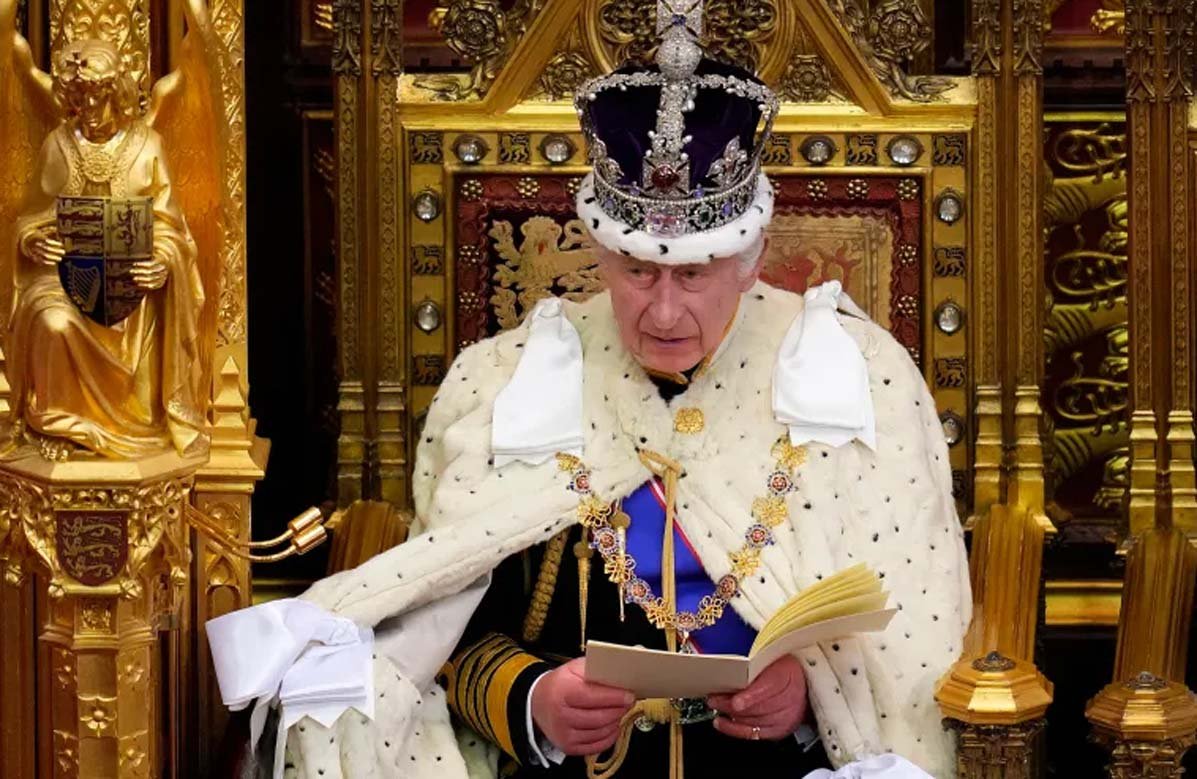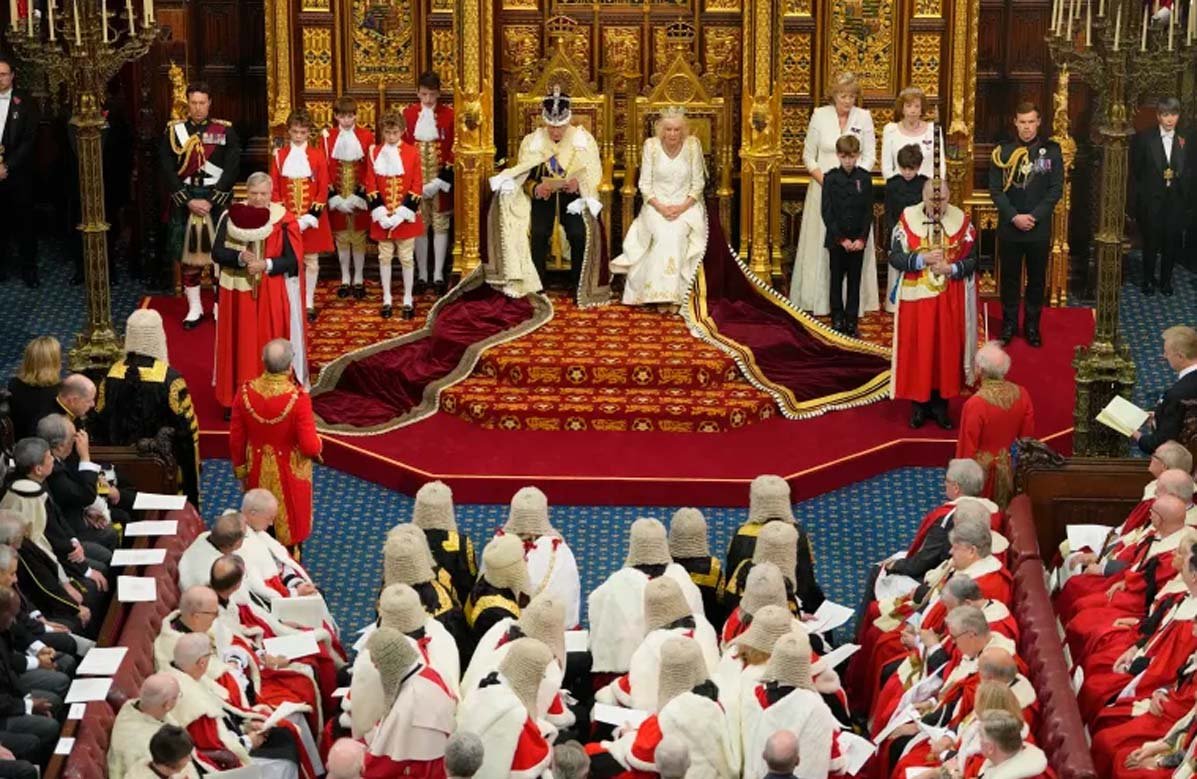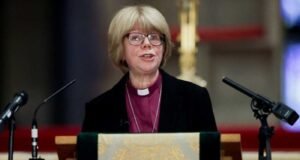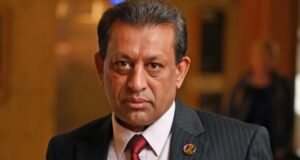
Photo : Britain’s King Charles III delivers the opening address of parliament on November 7, 2023
Britain’s King Charles III has delivered his first opening address of parliament since taking the throne, laying out the government’s policy priorities in areas spanning the economy, foreign policy and criminal justice.
The annual address – known as the King’s or Queen’s Speech – is a centuries-old tradition marking a new parliamentary session. The remarks are prepared by the government and read out by the monarch.
Charles became monarch when his mother died in September 2022 after a 70-year reign.
“It is mindful of the legacy of service and devotion to this country set by my beloved mother, the late queen, that I deliver this, the first King’s Speech in over 70 years,” Charles said in beginning the speech on Tuesday.
The ceremony could be the first and last time for Prime Minister Rishi Sunak to make his legislative case to the people. His Conservative Party will face a tough test in a general election expected next year from the rival Labour Party, which is up in the polls and could unseat him.
Charles spoke of government initiatives to tame inflation, bolster energy security and protect consumers from hidden prices, outlining what Sunak hopes will be vote-winning reforms for the Conservatives.
The monarch also voiced strong backing for allies Ukraine and Israel in their ongoing wars. He denounced “barbaric acts of terrorism against the people of Israel” but said the United Kingdom would work to facilitate humanitarian aid for Gaza.

Photo : Britain’s King Charles III and Queen Camilla appear in the House of Lords during the State Opening of Parliament in London on November 7, 2023
What was in the King’s Speech?
The 10-minute speech touched on a range of hot-button issues – from data protection to criminal sentences guidelines and tobacco regulations.
Several proposals were touted as “Brexit freedoms”, enabled by the UK’s exit from the European Union, such as less stringent data-protection rules.
The address touched on plans to hand out life sentences without parole to aggravated murderers as well as tougher penalties for serious sexual offenders.
The government also said it would proceed with efforts to cut back environmental regulations after Sunak lifted a moratorium on North Sea oil and gas extraction in July. A planned law would require new oil and gas drilling licenses in the North Sea to be awarded every year, which the government argues will protect jobs, cut Britain’s reliance on foreign fuel and increase energy security.
“My ministers’ focus is on increasing economic growth and safeguarding the health and security of the British people for generations to come,” the king said.
Few details were laid out in the economic proposals, but they featured plans to expand and regulate new economic sectors, such as artificial intelligence and self-driving cars, and a law to open Britain’s market to a group of Pacific Rim nations as part of a trade agreement known as the Comprehensive and Progressive Agreement for Trans-Pacific Partnership, which the UK agreed to join in July.
There also was legislation to phase out all tobacco sales in England.
Under the plan, anyone who was born on or after January 1, 2009, will never be allowed to legally buy cigarettes.
Several bills were carried over from the last session, including one to bolster protection for renters and a contentious plan to ban public bodies from imposing “politically motivated boycotts of foreign countries” – a law aimed at stopping boycotts of Israel.
General election
The speech, given a month after the two main Conservative and Labour parties held their annual conferences, is adding anticipation to an election campaign not yet formally under way.
The Labour Party currently enjoys a 20-point lead over the Conservatives ahead of voting that must be called by January 28, 2025.
Although a Tory defeat at the next election is far from a foregone conclusion, owing to their sizeable parliamentary majority, a loss would mean much of the legislation outlined in the King’s Speech never seeing the light of day.
“The problem for Sunak is he’s running out of time. The public are both bored and angry at Conservative governance,” said Richard Carr, an associate professor in public policy and strategy at Anglia Ruskin University.
 Weekly Bangla Mirror | Bangla Mirror, Bangladeshi news in UK, bangla mirror news
Weekly Bangla Mirror | Bangla Mirror, Bangladeshi news in UK, bangla mirror news







